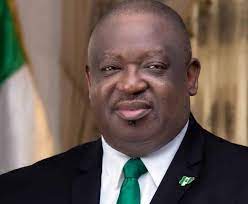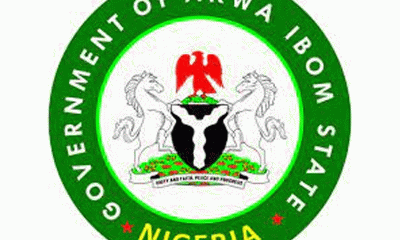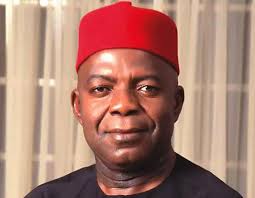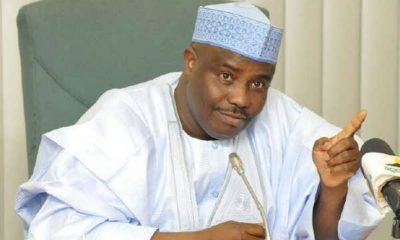Foreign News
Developing Countries Need $4.3trn to realise SDGs –ECOSOC
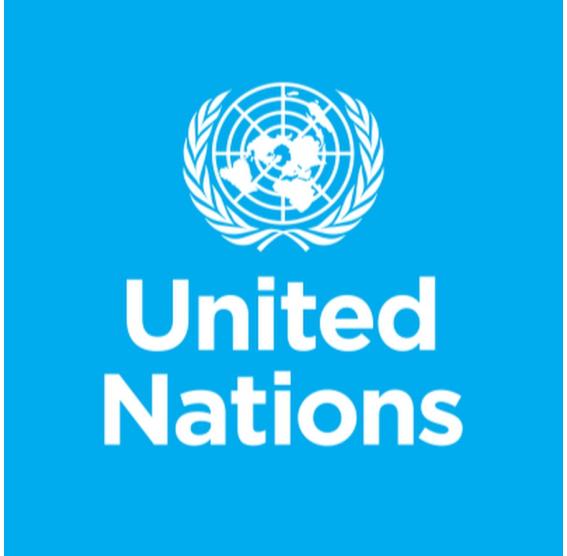
The President of the UN Economic and Social Council (ECOSOC), Mr Munir Akram, has said that developing countries require need 4.3 trillion dollars to realise the 17 objectives of the Sustainable Development Goals (SDGs) by 2030.
Akram spoke on Friday at the UN headquarters in New York at a high level meeting of ECOSOC.
He said developing countries would need the 4.
3 trillion to recover from the crises caused by COVID-19 pandemic.ECOSOC is one of the six main organs of the UN and the pandemic is unfolding during its 75th anniversary.
The organ promotes collective action for a sustainable world.
The meeting was held one day after the conclusion of its annual High Level Political Forum (HLPF) to review progress towards achieving the SDGs.
The ECOSOC president said ensuring COVID-19 vaccines for all would be critical if the world was to defeat the disease.
“COVID-19 vaccines for all will be critical if the world is to defeat the pandemic,’’ he said.
Reflecting on the past year, Akram recalled how the council responded to the crisis, as well as climate and development challenges, including through drawing attention to the special needs of the world’s least developed nations.
He urged countries to build on the convergence and consensus achieved in order to confront major tasks ahead, starting with ensuring that everyone, everywhere, is protected against the virus.
“Universal and affordable access to COVID-19 vaccines is essential to defeat the virus and to revive global trade, investment and growth.
“We have agreed on what needs to be done. We must now do it,” he said.
Akram welcomed plans to create 650 billion dollars in Special Drawing Rights (SDRs), a type of reserve foreign asset developed by the International Monetary Fund (IMF), among other debt relief initiatives.
On climate change, he highlighted the critical need for developed countries to fulfill their commitment to provide 100 billion dollars annually in climate finance.
“Scaled-up investment in sustainable infrastructure, an estimated requirement of one trillion dollars per year, is essential also for the transition to a dynamic ‘green’ global economy,” he said.
He also called for action plans for job creation in sectors such as construction, renewable energy, transport and housing.
The ECOSOC President urged the international community to combat rising poverty and hunger through measures that include social protection and relief programmes.
Greater access to advanced technologies and innovations, particularly digital technologies, is another priority, as they are vital to achieving the SDGs and climate goals.
Akram also stressed the need to mobilise the political will to address structural and systemic barriers to equitable growth and development, namely unequal financial, tax and trade regimes. (NAN)
Foreign News
Gaza: UNESCO Condemns ‘Unacceptable’ Killing of Journalists

The United Nations Educational, Social and Cultural Organisation (UNESCO), has strongly condemned the killing of six journalists in Palestine by an Israeli drone on Sunday.UNESCO’s Director-General, Audrey Azoulay, made this known in a statement on Tuesday.“I condemn the killing of journalists Anas Al-Sharif, Mohammed Qreiqeh, Ibrahim Zaher, Mohammed Noufal, Moamen Aliwa, and Mohammed Al-Khaldi and call for a thorough and transparent investigation, she said.
Five of the six worked for the influential Qatari-based media organisation, Al Jazeera. Anas Al-Sharif and Mohammed Qreiqeh were on-air correspondents, while Ibrahim Zaher, Mohammed Noufal and Moamen Aliwa worked as camera operators.Mohammed Al-Khaldi was a freelance photojournalist.They were reportedly killed by an Israeli attack on a tent used by media personnel at the entrance of Al-Shifa Hospital in Gaza City.The Israeli Defense Forces (IDF) alleged that the 28-year-old al-Sharif was a serving Hamas operative.Al Jazeera strongly denies this, describing the attack as an “assassination” and “yet another blatant and premeditated attack on press freedom.”The UN Human Rights Council-appointed independent expert on freedom of expression had on July 31 denounced an Israeli military spokesperson’s “repeated threats” and “unfounded accusations” against Al-Sharif.The council had described the allegation as “a blatant attempt to endanger his life and silence his reporting” in Gaza.Two Special Rapporteurs on Tuesday described the killings as “an attempt to silence reporting on the ongoing genocide and starvation campaign” in Gaza.“It is outrageous that the Israeli army dares to first launch a campaign to smear Anas Al-Sharif as Hamas in order to discredit his reporting and then kill him and his colleagues for speaking the truth to the world,” they said.The experts demanded an immediate investigation into the killings and full access to international media, which Israel currently bars from entering Gaza.Special rapporteurs and other independent experts are appointed by and report regularly to the Human Rights Council.They work in their individual capacity, are not UN staff and receive no payment for their work.UNESCO chief Azoulay stressed that targeting journalists reporting on conflicts is unacceptable and violates international law.She also reiterated her call to respect UN Security Council Resolution 2222, which was unanimously adopted in 2015 to protect journalists, media professionals, and associated personnel in conflict situations.UNESCO reports that since Oct. 2023, at least 62 journalists and media workers have been killed in the line of duty in Palestine.This excludes deaths in circumstances unrelated to their work, while OHCHR reports that at least 242 Palestinian journalists have been killed in the same time frame. (NAN)Foreign News
Trump, Putin to Meet in Coming Days-Kremlin Says

US President Donald Trump and Russian President Vladimir Putin have agreed to meet in the “Coming days”, the Kremlin has said.
It followed Trump saying there was a “good chance” he could meet his Russian and Ukrainian counterparts together in person “Very soon” to discuss ending the war in Ukraine.
Ukrainian President Volodymyr Zelensky indicated support for that idea, while Putin said he was not against meeting Zelensky but he was “Very far” from it happening.
Trump’s deadline for Russia to agree to a ceasefire in Ukraine or face more sweeping sanctions is due to expire on Friday.
A meeting between Trump and Putin would follow US envoy Steve Witkoff holding talks with the Russian president on Wednesday.
Witkoff has travelled to Moscow four times previously, visits followed by optimism from Trump but ultimately no major breakthrough in peace talks.
Speaking on Thursday, Putin said the United Arab Emirates could host his meeting with Trump, potentially as early as next week.
He said he was “very far” from a meeting with Zelensky because “Conditions” had not been met and there was “still a long haul ahead for creation of such conditions”.
Previously, Putin said he would only meet Zelensky during a final phase of negotiations. Kyiv and its Western partners reject Moscow’s demands for ending the war.
Zelensky indicated his support for a summit, acknowledging that various formats of meetings had been discussed – “Two bilateral and one trilateral” – and added that Europe “must be a participant” in any talks.
He wrote on X: “Ukraine is not afraid of meetings and expects the same brave approach from the Russian side.”
When asked at a White House briefing on Wednesday night whether Zelensky and Putin had agreed to a three-way summit, Trump had said there was a “very good prospect”.
Last month, Trump admitted that after all four of Witkoff’s previous visits, Putin had disappointed him after talks had initially led to optimism.
The US President is now striking a more cautious tone, telling reporters on Wednesday: “I don’t call it a breakthrough…we have been working at this for a long time. There are thousands of young people dying… I’m here to get the thing over with.”
On Wednesday, the Kremlin released a vague statement about Witkoff’s visit, calling the discussions “constructive” and noting that both sides had exchanged “signals”.
Zelensky meanwhile said he had spoken to Trump about Witkoff’s visit, with European leaders also on the call.
The Ukrainian president has been warning that Russia would only make serious moves towards peace if it began to run out of money.
Expectations are muted for a settlement by Friday – when Trump’s deadline expires – and Russia has continued its large-scale air attacks on Ukraine despite the US threat of sanctions.
As pressure builds, Trump on Wednesday signed an executive order imposing a 25% tariff on Indian imports over its continued purchase of Russian oil
Before taking office in January, Trump said he would be able to end the war between Russia and Ukraine in a day. The conflict has raged on and his rhetoric towards Moscow has since hardened.
Three rounds of talks between Ukraine and Russia in Istanbul have failed to bring the war closer to an end, three-and-a-half years after Moscow launched its full-invasion.
Moscow’s military and political preconditions for peace remain unacceptable to Kyiv and to its Western partners.
Russian demands include Ukraine becoming a neutral state, dramatically reducing its military and abandoning its Nato aspirations.
It also wants Ukrainian military withdrawal from its four partly occupied regions in the south-east, and the demobilisation of its soldiers.
Russia also demands international recognition of Ukraine’s Donetsk, Luhansk, Kherson and Zaporizhzhia regions, as well as the annexed Crimea.
Other conditions include a ban on Ukraine’s membership in any military alliances, a limit on the size of the Ukrainian army, Russian as an official language, and the lifting of international sanctions on Russia.
The Kremlin has also repeatedly turned down Kyiv’s requests for a meeting between Zelensky and Putin.
Meanwhile, the US approved $200m (£150m) in additional military aid to Ukraine on Tuesday, including support for drone production.
Foreign News
US Seeks $15,000 for Visa Applicants Deposit from Two African Countries

The US has required citizens from Malawi and Zambia to pay a $15,000 (£11,300) deposit for a tourist or business visa, according to the US state department.
The 12-month pilot programme aims to curb visa overstays or where screening and vetting information is considered deficient according to a notice published by the state department.
It was said that citizens of other countries than Malawi and Zambia may soon also need to pay a similar deposit, which will be returned at the end of their visit to the US.
The US administration has taken several steps to further President Trump’s agenda of stemming illegal immigration.
Trump signed an executive order on the first day of his second term to this effect, and the state department noticed published on Tuesday, says: “Aliens applying for visas as temporary visitors for business or pleasure (B-1/B-2) and who are nationals of countries identified by the Department as having high visa overstay rates, where screening and vetting information is deemed deficient, or offering Citizenship by Investment, if the alien obtained citizenship with no residency requirement, may be subject to the pilot program.
“Consular officers may require covered non-immigrant visa applicants to post a bond of up to $15,000 as a condition of visa issuance, as determined by the consular officers.” Figures published in 2023 by the US department of Homeland Security show that about 14% of visitors from Malawi overstay their visas, compared to 11% of Zambian visitors.
Other countries with high overstay rates include Haiti (31%), Myanmar (27%) and Yemen (20%).
Zambia Foreign Minister Mulambo Haimbe had said the government was “engaging our counterparts to get a full understanding of the implications and what can be done, if anything, to address the underlying issues”.
Since coming to office in January, Trump has signed orders to roll back humanitarian programmes for migrants from certain countries who are already in the US. He has also banned foreign nationals from 12 countries from travelling to the US, and imposed partial restrictions on another seven.
His administration has revoked visas for hundreds of international students and detained several others on college campuses across the US, often without any warning or recourse for appeals.
The state department has said it is targeting those who were involved in activities that “run counter” to US national interests.
Many of those targeted have participated in some form of pro-Palestinian activity.
But there have been other cases where cancellations appear to be connected to those with some sort of criminal record, or legal infractions like driving over the speed limit, immigration lawyers have said.



